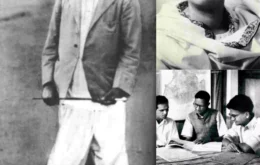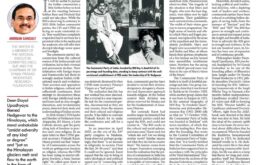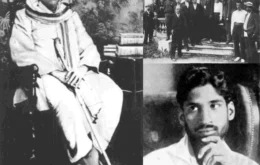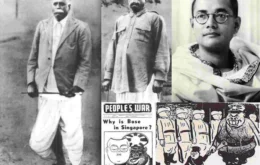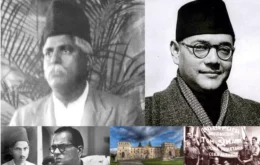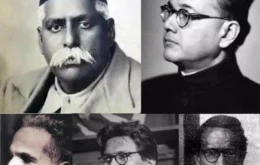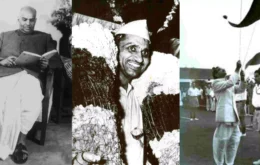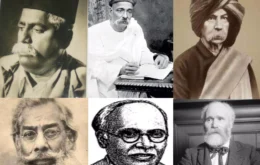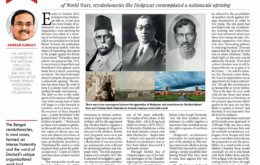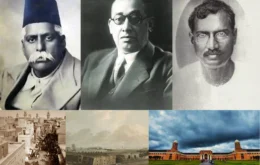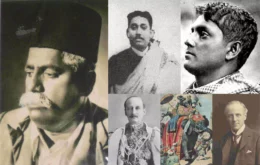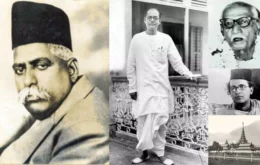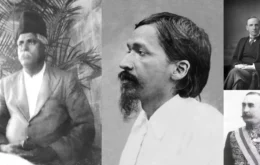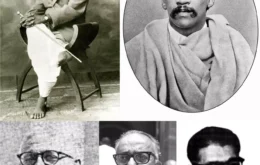An If of History-1
Amid India’s fight for freedom, a shadowy alliance of communists, colonialists, and the Muslim League unfolded vis-à-vis a prospective meeting between Doctorji and Subhas Bose that never materialised Referring to the communists’ collaboration with the British and the Muslim League throughout the decade of 1940s, HV Sheshadri calls it a …
Ganga and the Rivulet
RSS’ ever-expanding march sharply contradicts the journey of communism in India, which is gasping for relevance in its ideological wilderness due to its estrangement from India’s civilisational ethos It will be useful to pursue the Indian communists a little further before we look at the meeting between Subhas Bose and …
When the Call Comes
From vilifying Subhas Bose to suppressing Hedgewar’s call for readiness, the communist record of betrayal and the Sangh’s steadfast resolve offer a study in contrasts during India’s freedom struggle In a short treatise, “Where are They: Communists under Communism”, philosopher Ram Swarup (1920-1998) observes that the “communist strategy is simple. It consists …
Ungrateful Turnaround
Balaji Huddar’s ideological volte face under communist influence reflected his distorted loyalties, which led him to vilify his former mentor Doctorji, who stayed true to his benevolence. Balaji Huddar’s transformation is a stark example of how communism distorts one’s thinking and approach. HV Seshadri writes, “By the end of December …
Deceitful Distortions
Authentic records of Subhas Bose’s attempted meeting with Hedgewar expose the ideological manipulations of certain communists whose support to Partition echoed with Doctorji’s prescient warnings against partitionist forces On Subhas Bose’s attempted meeting with Doctorji in 1940, I would go with the records of that attempt documented by HV Seshadri, …
Entrenched in Indian Ethos
By floating the first indigenous political philosophy of Integral Humanism, Deendayal Upadhyaya set in motion an ideological evolution that would shape the destiny of India We shall briefly interrupt our many-sided exploration of a unique movement of thought, culture and social transformation that the RSS is on the occasion of …
True to the Roots
We would do well to remember that Doctorji had grown up in a Nagpur that was intensely charged with the sentiments and feelings of revolution. One of RSS’ most iconic intellectuals, philosopher and mass organiser, Dattopant Thengadi (1920-2004), once Dr BR Ambedkar’s understudy, best describes that atmosphere in one of …
Lost Plot of Uprising
This final part of the two-part article explores how, when India stood at the crossroads of World Wars, revolutionaries like Hedgewar contemplated a nationwide uprising Earlier in October 1912, historian Uma Mukherjee tells us, in her opus ‘Two Great Indian Revolutionaries’, as a preparation for organising a mass uprising …
Bose, Hedgewar, and the War Within
This is the first of a two-part series tracing a little-known but crucial meeting between Indian revolutionaries in 1940 — at the edge of a world war, and the cusp of a forgotten uprising Maharaj’ Trailokya Nath Chakraborty mentions his visit to Nagpur, while he was touring north and central …
Bengal Revolutionaries and Doctorji
Credible records and memoirs uncover the deeply sophisticated yet organic link between Hedgewar and Bengal’s revolutionary nationalists including Subhash Chandra Bose—putting a spotlight on their shared roots in anti-colonial struggle Let us continue with the memoirs of freedom fighter Jogesh Chatterjee in our effort to retrace the link between Dr …
Hedgewar under ‘Unfortunate Influence’
We discussed revolutionary Jogesh Chandra Chatterjee’s mention of Doctorji’s close association with Anushilan Samiti. Chatterjee also mentions freedom fighter VV Athalye who was drawn into the Anushilan Samiti fold as a student of the National Medical College in Kolkata. The Anushilan Samiti imprint was clearly visible on Athalye’s actions when …
A Soldier of the Anushilan Samiti
As a young medical student in Kolkata, Hedgewar was deeply involved with the revolutionary Anushilan Samiti—which was influenced by Bengal’s Swadeshi movement—and later channelled his nationalist fervour into founding the RSS Dr Hedgewar had a close association with and was an active member of the Anushilan Samiti as a student …
